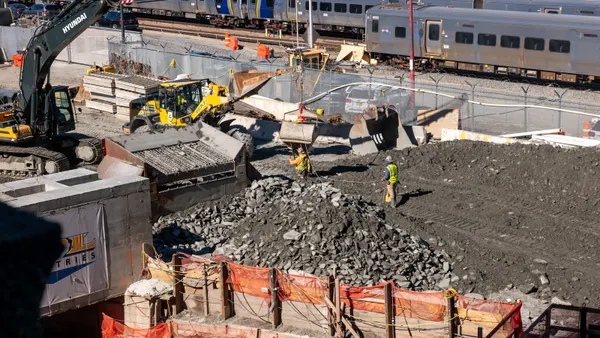Dive Brief:
- New Hampshire has become the first state to officially opt out of FirstNet, the nationwide dedicated high-speed broadband wireless communications network for public safety workers and first responders, according to StateScoop and others.
- Earlier this year AT&T won the federal contract to build and maintain the nationwide FirstNet network for the next 25 years, but New Hampshire will use Rivada Networks as its alternative contractor. It will finalize a deal in the first quarter of 2018.
- As of Dec. 11, 36 of the 56 eligible U.S. states and territories have opted in to FirstNet, in addition to New Hampshire's opt out. The rest have until Dec. 28 to make a decision.
Dive Insight:
FirstNet is an independent authority in the National Telecommunications and Information Administration, which is an agency within the U.S. Department of Commerce. The need for a dedicated, solid communications network for emergency services workers became apparent after 9/11, when firefighters were not able to communicate with their peers — only their supervisors — and vital information wasn't able to be shared among those on the ground.
FirstNet expects its core network to be in place by March and the full infrastructure should be in place by 2020. States have the choice to find their own providers to build towers and connections or to let AT&T do that through the national network. All alternative networks must meet minimum federal technical standards and be interoperable with FirstNet. States that opt out of FirstNet have to submit their plan to the FCC for approval, proving the network's interoperability with FirstNet. One of the huge benefits of opting in to AT&T's network is that the infrastructure build-out doesn't cost states anything.
New Hampshire Governor Chris Sununu announced his state's decision to opt out based on findings from a financial and regulatory due diligence report, as well as a unanimous opt-out recommendation from the Statewide Interoperability Executive Committee. Sununu said the alternative network will be a good investment that benefits first responders and citizens.
Colorado is also considering Rivada, although it has not officially announced whether it will choose the alternative or FirstNet. Last month that state made a conditional contract award to Rivada if it ends up opting out of the FirstNet service. New Hampshire had made a similar conditional contract with Rivada before making its decision. Part of what makes Rivada attractive to some leaders is that it offers greater local control. It caters to each state's needs and allows input from local emergency workers. With FirstNet, states have less, if any, say in how AT&T operates the nationwide network and measures its success.
A number of leaders have expressed concern about FirstNet/AT&T's ability to adequately cover the entire country, most notably rural areas. That's part of what drove New Hampshire to opt out, because although many consider the southern part of the state an extension of the highly-populated Boston area, much of the state is rural and mountainous. Similarly, a group researching Colorado's potential partnership with Rivada notes that the provider's locally-driven network could stimulate rural broadband coverage and accessibility for people in all areas, instead of just in cities.
States getting an opt-out decision wrong comes with a pricey penalty. Should their alternative service provider's network fail, they would have to pay tens or hundreds of millions for FirstNet to complete or rework their network.













